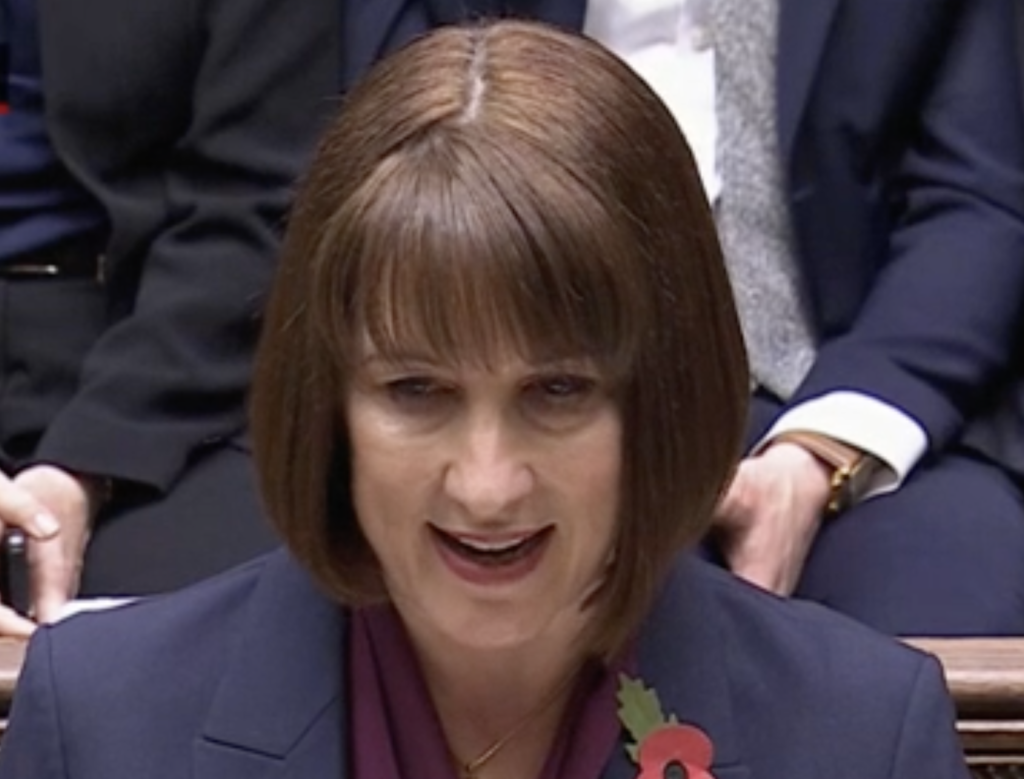Employer National Insurance contributions will increase from 13.8 percent to 15 percent from April 2025, chancellor Rachel Reeves has confirmed in her first Budget today.
But there has been no introduction of National Insurance on employer pensions contributions as had been trailed before the Budget.
The government will reduce the secondary threshold, the level at which employers start paying national insurance on each employee’s salary, from £9,100 pounds a year to £5,000 pounds.
Reeves admitted that by raising employer NI rates she was asking businesses to “contribute more” to stabilise public finances.
“This will raise £25 billion pounds a year by the end of the forecast period. I know that this is a difficult choice. I did not take this decision lightly. We are asking businesses to contribute more. And I know that there will be impacts of this measure, felt beyond businesses, too.”
There was some respite for smaller employers as the chancellor said the employment allowance will increase from £5,000 to £10,500 pounds. “This means 865,000 employers won’t pay any national insurance at all next year, and over 1 million will pay the same or less than they did previously. This will allow a small business to employ the equivalent of four workers on the national living wage without paying any national insurance.”
Hannah English, head of DC Corporate, Hymans Robertson said: “While the perception that the recent reductions in DB scheme funding costs have created more than enough breathing space for extra national insurance contributions for UK corporates on their wage bills. We are concerned the opposite is true. Stacking another cost on the pay and benefits for every UK corporate may drive behaviours that yet again can harm today’s ‘working people’ in their DC pension schemes.
“Corporates may choose to stop sharing employer NI savings on salary sacrificed pension contributions. For an employee on a £32k salary making 5 per cent contributions into their pension via salary sacrifice, the employee may currently benefit form an additional £221 per year by way of the valuable sharing of all NI savings. If employers decide to no longer share these savings this could have a long-term impact on the outcomes of today’s savers.
“The change announced by the Chancellor may be the final straw for those employers that have upheld their generous pension contributions despite difficult economic conditions. In this case, such scheme contribution structures may be increasingly get overhauled.”
Benoit Hudon, president and chief executive, Mercer UK, called the employer NI increases “a tax on growth” and “an additional financial burden on UK businesses”.
He said: “In the context of global markets, this rise will make each new UK recruit more costly, potentially stifling hiring, limiting pay rises, or possibly even leading to a reduction in benefits and/or pensions. Consequently, working people risk bearing the brunt of this increase, as businesses try to balance the books and remain competitive.
“In the long run, this hike comes with a significant opportunity cost to the UK. Reduced economic growth means a smaller tax take for the Treasury, leaving them with an even smaller pot to invest in vital public services like social care and the NHS, at a time when investment is needed more than ever.”
Matt Russell, CEO of employee benefits technology provider Zest, said the spike in employer NI contributions “may curb salary growth”. But added that it made employee benefits more valuable to organisations and their staff.
“Employee benefits packages are one of the most effective ways that employers can deliver financial support to their workforce, over the last 12 months half (49 percent) of employers have already increased investment in their benefits package supporting with talent attraction and retention whilst boosting morale and productivity.”
Hikes in employer NI were also slammed as as ‘a major setback’ to tackling the UK’s pensions undersaving crisis. Steve Webb LCP partner and former pensions minister said: “Current rules on automatic enrolment into workplace pensions require employees to make a 5 percent contribution and firms a 3 percent contribution, making 8 percent in total.
“It is widely accepted that this will not be enough for most workers to build up a reasonable standard of living in retirement. Even the government’s own estimates suggest that just over half (51 percent) of all employees or 17.7m people are not saving enough for a ‘moderate’ retirement.”
Isio partner Mark Jones said: “The Chancellor has announced not only a rise in the rate of employer National Insurance from 13.8 per cent to 15 per cent, but also a reduction in the Secondary Threshold to £5,000. This is a potential double hit for employers as they pay National Insurance on earnings above the Secondary Threshold, an extra £615 in NIC per employee from lowering the threshold alone. While it is projected to contribute the majority of the £40bn in tax rises announced by the Chancellor it could add c.2.5 per cent to payroll costs for a typical employer.”
Ian McQuade, CEO, Muse Advisory said: “We welcome the fact that The Chancellor decided not to make any significant change to the pensions regime beyond bringing pension savings into IHT for those dying before age 75, a measure we agree with. Pension planning is a long-term game and the constant chopping and changing to pensions taxation we have seen in recent years has been to the detriment of savers. We hope this signals a new era of stability, and that this ends the raft of pre-budget rumours, which this time around have led to people making irreversible decisions in relation to their pension arrangements for no good reason.”
